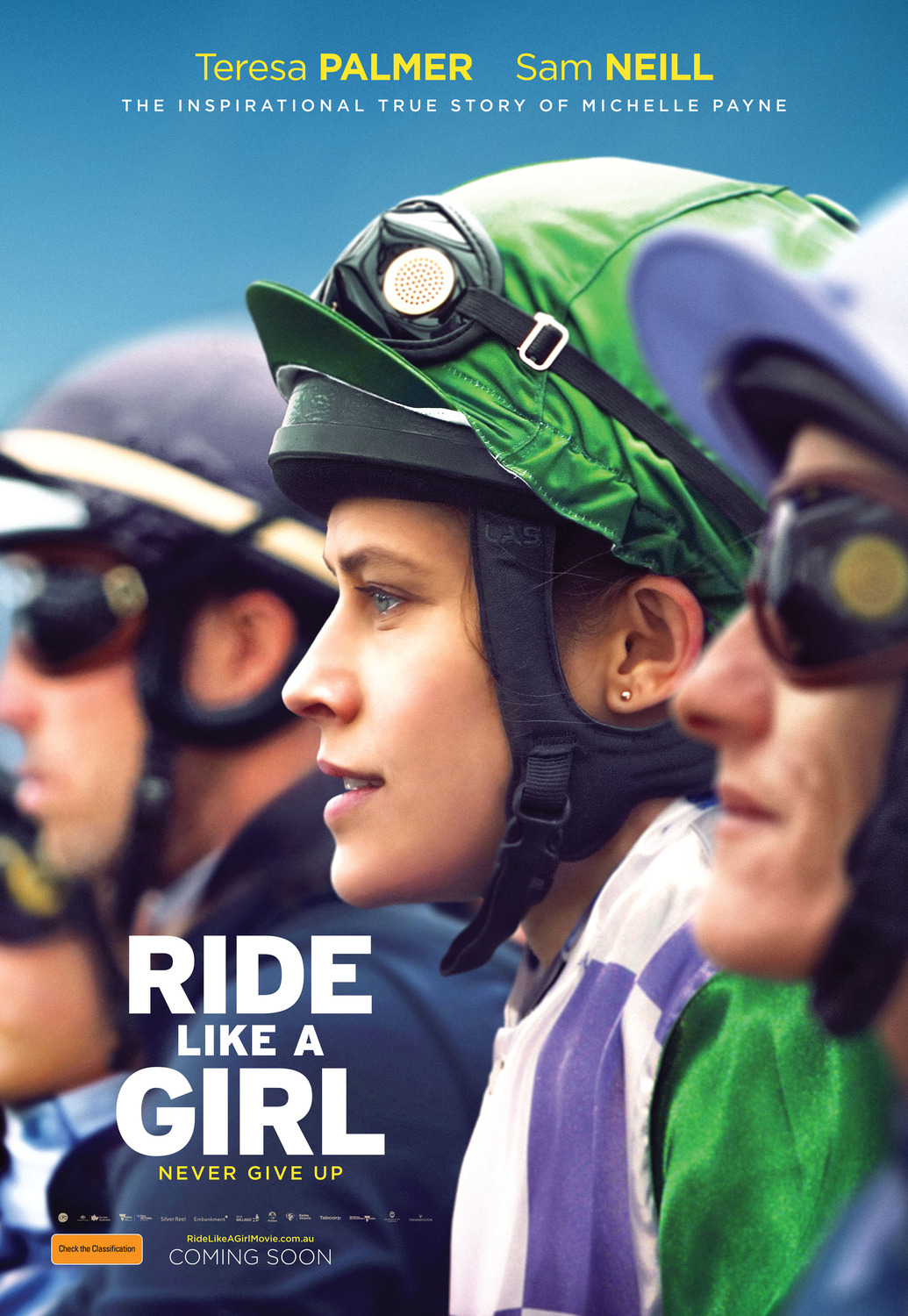The name Michelle Payne is little known (if at all) outside of Australia, but the pioneering jockey who broke into the male-dominated sport of horse racing and then became the first (and still only) woman to win the signature Melbourne Cup is getting her due at the cineplex. (Well—via video on demand, anyway, due to COVID-19). The U.S. release of the AACTA-nominated Ride Like a Girl comes six months after its Sydney premiere, and though it loses a little something by being relegated to the small screen, there’s still more than enough that works to consider it a win (as opposed to, say, a place or show—ba-dum-dum).
Teresa Palmer stars as Payne, the youngest of 13 kids in a devoted horse racing family led by patriarch Paddy (Sam Neill). Though her mother died when Michelle was just six months old, the youngster never wavered from her decision/life-calling to become a jockey, even telling friends at age seven that she would one day grow up to win the race that would indeed eventually make her famous.
The screenplay by Andrew Knight (Hacksaw Ridge) and Australian TV vet Elise McCredie presents Payne’s story in a fairly standard, paint-by-numbers method, tracking major life moments along her journey, including her decision to run away from home to find her first mount, overcoming the boys-club mentality (and what must be wildly under-played misogyny), and a serious fall that left her comatose and temporarily paralyzed. Though the script’s reliance on needlepoint-worthy lines such as “the only odds that matter are the ones you give yourself” may cause a little eye-rolling, Knight and McCredie wisely provide the right amount of background and exposition to get all of us uninformed, non-Aussie folks invested in the story from the very beginning.
Actress Rachel Griffiths, making her directorial debut, keeps the pace steady and provides Palmer with plenty of room to flex her muscle and do Payne justice. And her decision to bring along her Muriel’s Wedding cinematographer, Martin McGrath, pays off; the film is dotted with eye-candy moments highlighting the beauty of the horses and both the pageantry and the grit of the races. Casting Payne’s real-life brother Stevie (who has Down Syndrome) as himself was also a nice touch and gives the film a nice bit of continuity.
Presented as a family-friendly, Disney-esque history lesson, more than any kind of penetrating and insightful probe into Payne’s motivations and psyche, Ride Like a Girl occasionally feels like it’s only skimming the surface. But even at that, it still has no problem crossing the finish in winning fashion as an inspirational and ultimately uplifting story about one of Australia’s national heroes and a quintessential role model for young women everywhere.
Rating
3.5/5 stars
